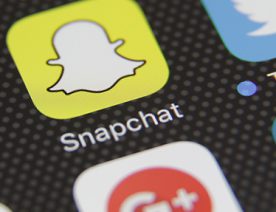
A new study from The Associated Press and NORC at the University of Chicago surveyed 790 American teens age 13 to 17 about their social media, messaging, and video content habits. The focus of the study was to understand if and why teens take breaks from the social media platforms that are so prominent in teenagers’ digital lives.
The report finds that teens do take breaks, both of their own volition and not. The circumstances motivating these breaks have major impacts on how teens evaluate the experience. In the end, most teens do return to these digital social platforms and find that not much about the environment has changed—for better or worse.
The data for this report were collected in a nationally representative survey fielded between December 7 and 31, 2016, using the AmeriSpeak® Panel, the probability based panel of NORC at the University of Chicago. Online and telephone interviews using landlines and cell phones were conducted with 790 teens 13 to 17 years old after consent was granted by a parent or guardian.
Teens value the connections to people and information that social media provides.
American teens value the feeling of connection to family and—especially—friends that social media provides. A smaller number associate it with negative emotions like being overwhelmed or overloaded, or the need to show their best selves to an ever-present social media audience.
- 78 percent of social media using teens say it makes them feel closer to friends, and 40 percent of teens say social media makes them feel closer to family.
- 49 percent of teens say social media makes them feel more informed.
- 15 percent of teens say it makes them feel like they always need to show the best version of themselves.
- 10 percent of teens say it makes them feel overloaded with information.
Less than 10 percent of teens report that using social media makes them feel overwhelmed, like they are missing out, or alone.
58 percent of teens have taken a break from at least one social media platform.
But regardless of how social media makes teens feel, many have left social media at some point, often multiple times and for extended stretches.
- 58 percent of teens who use social media have taken at least one break from the platforms.
- 23 percent of teens who have not taken a break from social media have wanted to take one.
- 60 percent of teens who have taken breaks from social media have taken three or more; 22 percent have taken two, and 18 percent have taken just one break from the platforms.
- About half of teens say their social media breaks are typically a week or longer.
- Boys are more likely to take longer breaks, with 36 percent of boys taking breaks of two weeks or longer from social media, while 22 percent of girls reported breaks of similar length.
Teens who leave social media voluntarily feel more positive about their time away; teens on involuntary breaks felt anxious and disconnected.
Among those taking a social media break, 65 percent did so voluntarily, while 49 percent did not have a choice. The circumstances under which teens step away from social media impact how they feel about the experience.
Teens who took breaks for voluntary reasons reported more positive feelings about their time away, while teens who were pushed off social media involuntarily reported greater feelings of missing out and disconnection from important people in their lives.
Teens who took a break were asked if a number of voluntary, involuntary, or other factors were reasons why they took their break. Those who cited any of the voluntary reasons were more likely than those who did not cite voluntary reasons to say they had more time to do other things, were glad to have had a break, felt relieved, and felt more connected to important people in their lives and news and information.
On the other hand, those who mentioned any of the involuntary reasons for a break were more likely than those who did not cite an involuntary reason to say they felt anxious they were missing out, wanted to get back on as soon as possible, and felt less connected to the important people in their lives.
Full report and analysis are available on the right sidebar of this page.
Three Things You Should Know about The AP-NORC Poll of How American Teens 13-17 Take Breaks from Social Media:
Among American teens age 13-17…
- While many teens report that social media makes them feel more informed, and connected to friends and family, 58 percent say they have taken some type of break from their platforms.
- 65 percent of teens have taken a voluntary break from social media; half left their social media platform involuntarily.
- Teens who have NOT taken breaks say they stay on social media because they don’t want miss out on what is going on (56 percent) or because social media is how they find out what is happening in the world (44 percent).



